August 29, 2025 | 18:40 GMT +7
August 29, 2025 | 18:40 GMT +7
Hotline: 0913.378.918
August 29, 2025 | 18:40 GMT +7
Hotline: 0913.378.918
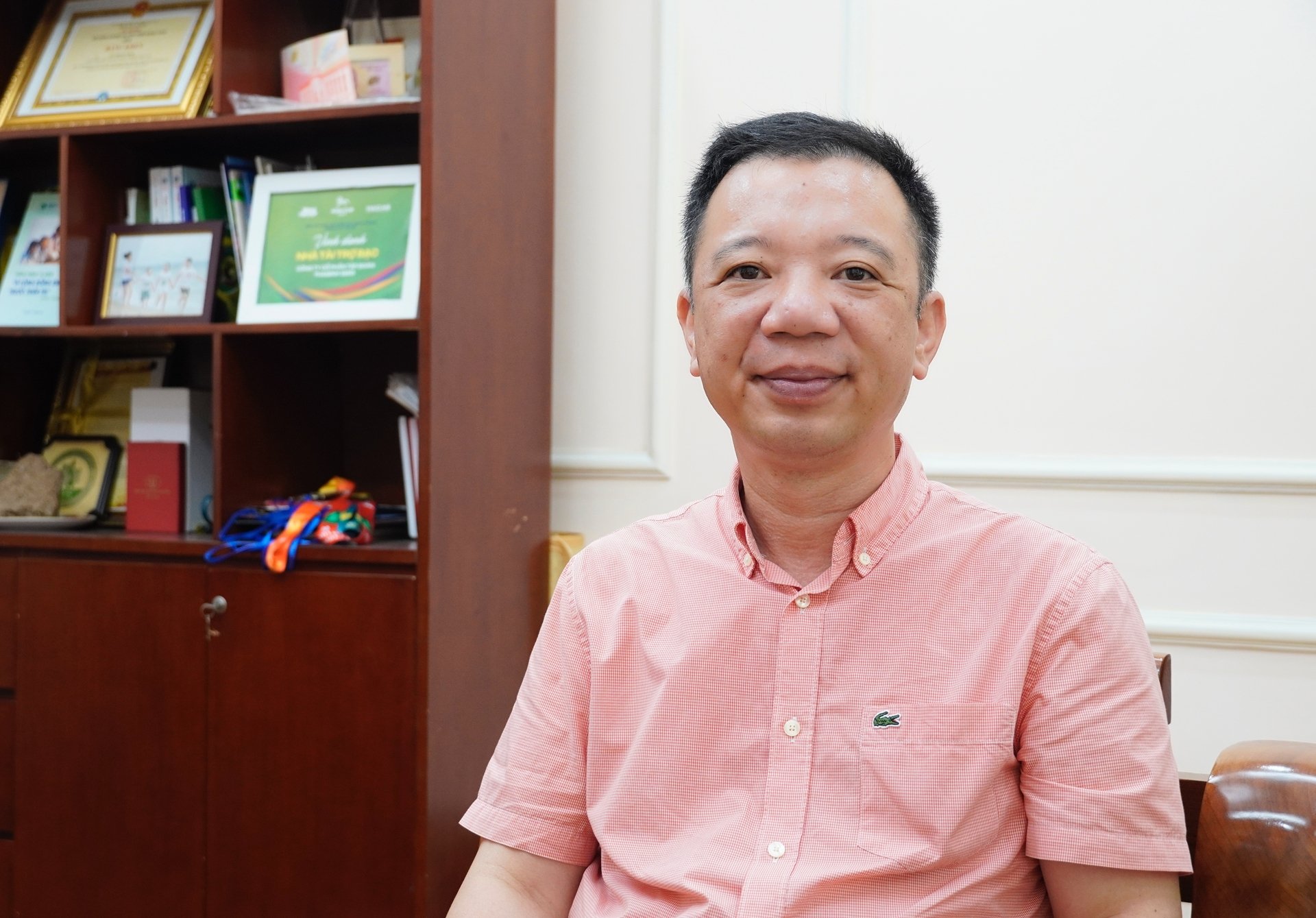
Mr. Do Quoc Thai, Chairman of the Board of Directors of Bamboo King Vina, said that Bamboo King Vina is the first Vietnamese enterprise to be recognized with biochar carbon credits. It is expected that in December, these credits will be traded on the international Verra exchange. Photo: Hong Tham.
Mr. Do Quoc Thai, Chairman of the Board of Directors of Bamboo King Vina, said that the high-tech factory producing modified bamboo and wood products of Bamboo King Vina was built on a 15-hectare site in Lang Chanh, Thanh Hoa – one of the most disadvantaged localities in the country but home to the largest bamboo material area in Vietnam, with more than 78,000 hectares.
“A bamboo tree can only be utilized about 20%, while the remaining 80% becomes waste. If burned, it not only causes pollution but also results in huge waste. I realized that the answer lies in biochar,” Mr. Thai shared.
These concerns motivated Bamboo King Vina to make strategic investments in biochar development, aiming to build a zero-waste circular economy.
According to Mr. Thai, biochar brings multi-dimensional benefits to the environment, production, and the economy. Each ton of biochar can sequester 2.5–3 tons of CO₂e, contributing to the reduction of greenhouse gas emissions and limiting harmful gases from burning rice straw and husks in the fields.
In cultivation, biochar helps retain water and nutrients, thereby reducing fertilizer and irrigation costs by about 15–25%, while increasing productivity by 10–20%, facilitating the achievement of organic and GlobalGAP certifications.
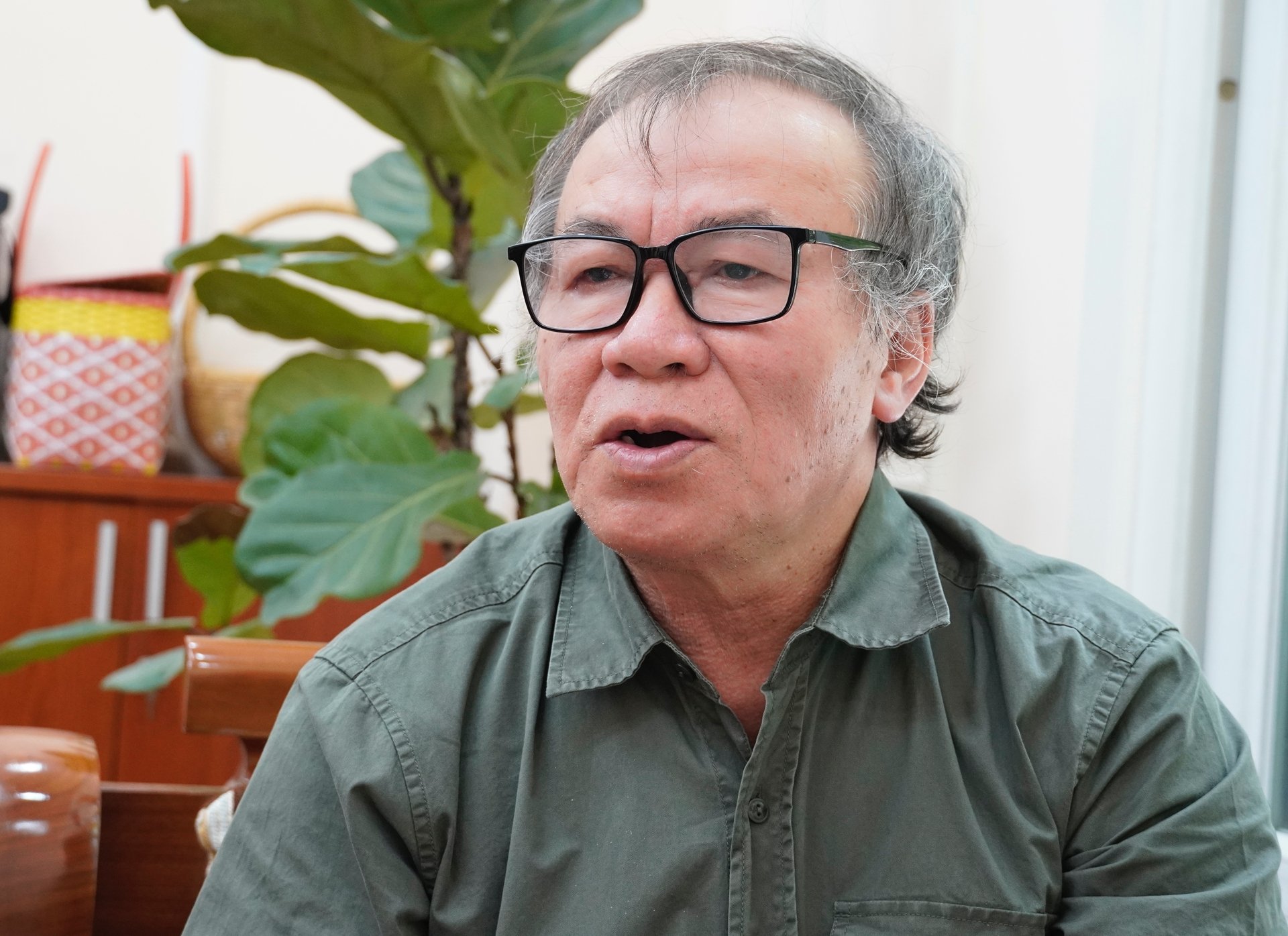
Dr. Nguyen Dang Nghia, an agricultural expert, said that Vietnam has a surplus of about 15 million tons of agricultural by-products each year. These are not waste but a valuable resource that needs to be recycled to avoid waste and environmental pollution. Photo: Hong Tham.
In animal husbandry, biochar absorbs toxic gases, reduces odor, improves barn environments and animal health when mixed into feed or used as biological bedding.
Beyond immediate benefits, biochar also opens the potential for forming a new industry, creating value chains from agricultural residue collection, production, application, to carbon credit export. On a national scale, the application of biochar contributes to building low-carbon agriculture, increasing the export value of agricultural products with the “carbon neutral” label, and creating competitive advantages in major markets such as the EU, the United States, and Japan.
Dr. Nguyen Dang Nghia, agricultural expert and former Director of the Southern Center for Soil, Fertilizer, and Environment Research, shares this view and says that biochar is considered the “black gold of the soil.”
With a porous honeycomb-like structure and extremely large surface area, biochar tightly binds heavy metals, preventing plants from absorbing them into roots and fruits. Biochar heals the soil, with effects including: absorbing harmful heavy metals and toxins in soil; improving soil fertility and resistance; reducing pests and harmful fungi; retaining fertilizer and water, saving over 30% of fertilizer and about 50% of irrigation water; increasing soil pH and strengthening root systems.
Mr. Thai said Bamboo King Vina is the first Vietnamese enterprise recognized for biochar carbon credits. This credit is expected to be traded on the international Verra exchange in December.
Currently, Bamboo King Vina’s factory produces about 7,200 tons of biochar per year, with plans to increase to 45,000 tons per year in the near future. According to calculations, by utilizing only a small portion of the more than 150 million tons of agricultural and forestry residues each year, Vietnam could earn USD 3–4 billion from carbon credits.
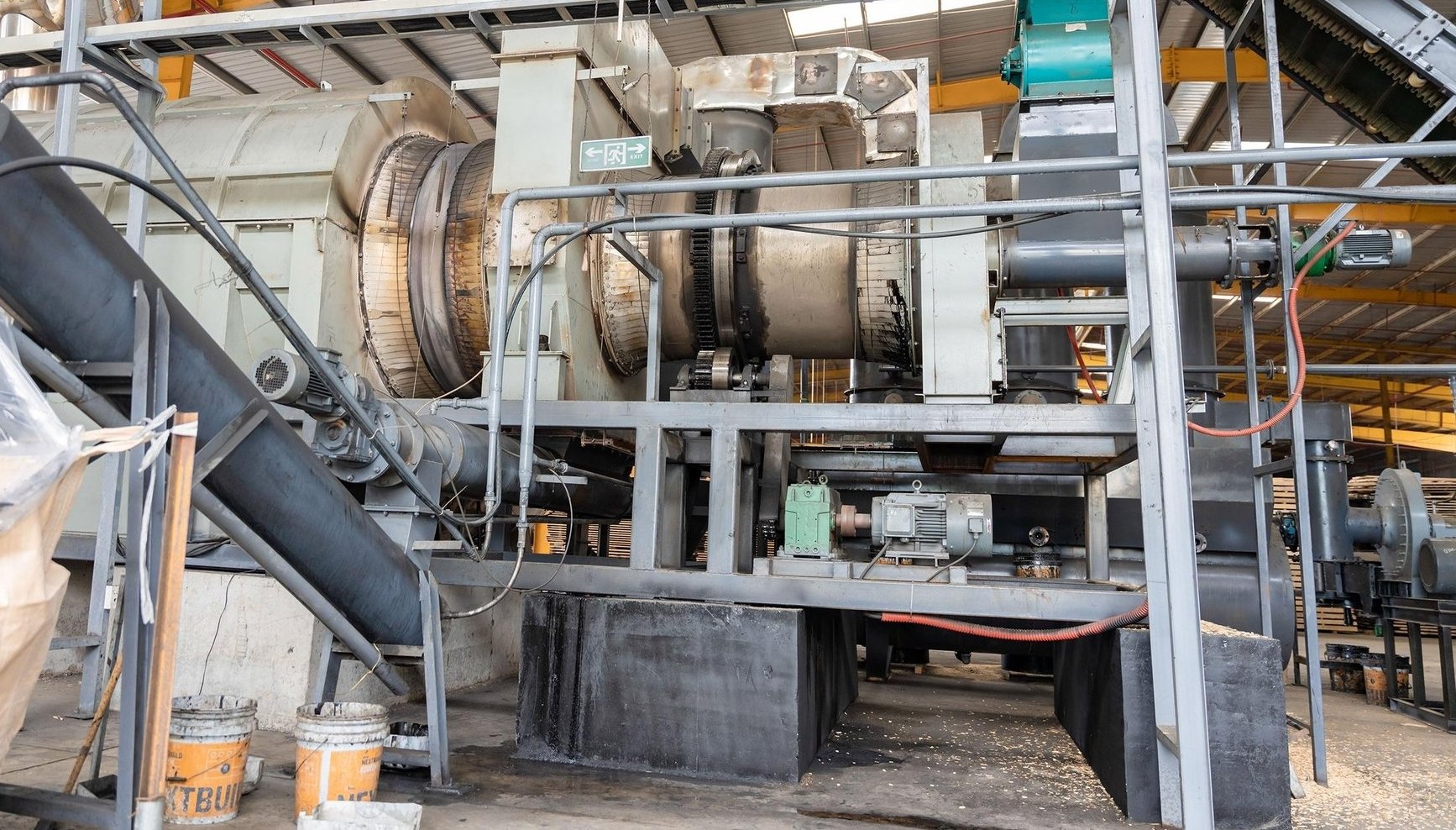
Currently, Bamboo King Vina's biochar production plant has mastered the technology, even manufacturing its own equipment and supplying it to the market. Photo: HT.
Unlike “emission reduction” credits, biochar credits are classified as permanent carbon removal, so the selling price is higher, ranging from USD 150–200 per credit.
However, to meet standards, biochar must have a carbon content of over 70%, H/C ratio below 0.6, ash below 20%, and production processes must strictly control emissions. This is why currently, there are only about 35 factories worldwide that meet the standards, including Bamboo King Vina.
Previously, Bamboo King Vina imported production lines from China, but the products did not meet requirements. After more than a year of improvement and cooperation with German experts, the company mastered the technology, even producing equipment itself and supplying it to the market.
Bamboo King Vina’s self-reliance on technology not only saves costs but also affirms Vietnamese enterprises' pioneering role in a new but highly potential field.
Dr. Nguyen Dang Nghia highly appreciated Bamboo King Vina’s model, which contributed significantly to the sustainable development of Vietnamese agriculture.
According to him, Vietnam generates about 15 million tons of agricultural residues annually. These are not wastes but resources that must be recycled to avoid waste and environmental pollution.
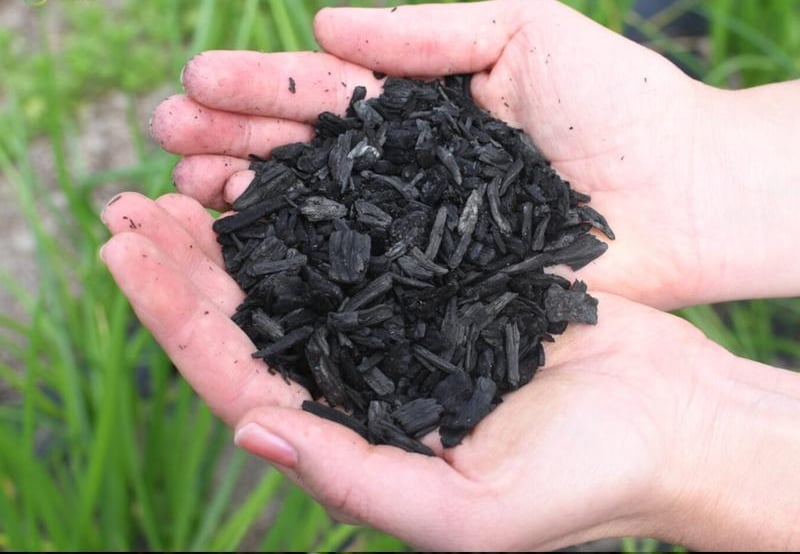
Biochar is likened to the "black gold of the soil." Photo: HT.
“The fact that Bamboo King Vina produces biochar and pioneers in finding buyers for carbon credits is of great significance in the context of Vietnam’s commitment to Net Zero by 2050 at COP26. The feasibility is very high, fully expandable, protecting the environment while generating foreign currency for the country,” Dr. Nghia emphasized.
However, biochar producers are still facing many difficulties. For biochar to truly enter life and be effective, Mr. Thai believes that a synchronous national policy framework needs to be developed soon.
Specifically, promoting research support, technology transfer, and green credit; issuing Vietnamese Standards (TCVN) and Vietnamese Technical Regulations (QCVN) standards for biochar while recognizing it as an agricultural material; exempting import tax on equipment, applying tax incentives for standard biochar producers; forming a domestic carbon market capable of international linkage; and especially introducing biochar subsidy policies for farmers in the initial application stage.
“If just a small portion of agricultural residues is utilized, Vietnam could earn USD 3–4 billion annually from biochar carbon credits. Worldwide, there are tens of thousands of biochar producers, but only about 35 factories have been recognized for credits. Bamboo King Vina is the first Vietnamese enterprise to make it into that list,” said Mr. Do Quoc Thai, Chairman of the Board of Directors of Bamboo King Vina.
Translated by Huong Giang
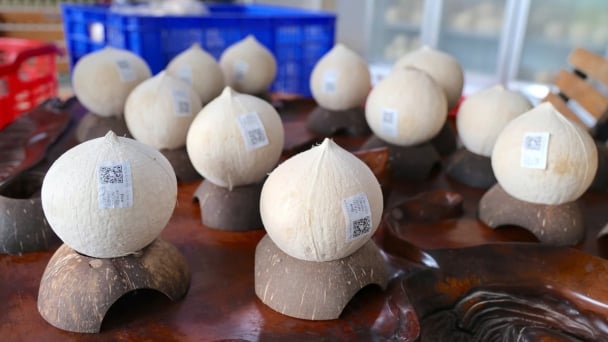
(VAN) Viet Coconut Cooperative 78 has built the brand 'Tay Ninh peeled coconut', pioneering the use of QR codes on each fruit and opening the way for local coconuts to reach larger markets.
/2025/08/28/3715-2-002414_57.jpg)
(VAN) The success of Moc Chau farmers has been significantly supported by international organizations, which have introduced techniques and models for farmers to apply to their production.
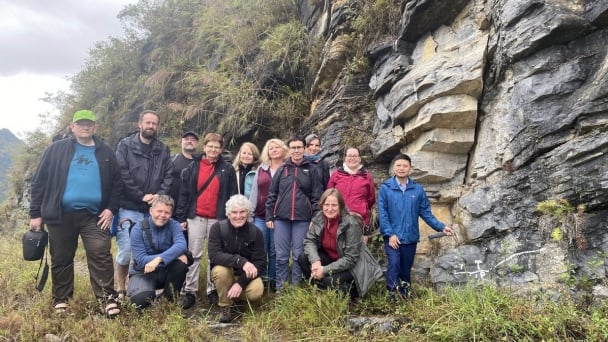
(VAN) Conserving and sustainably utilizing geological heritage at the Dong Van Karst Plateau Global Geopark will drive economic development in upland regions.
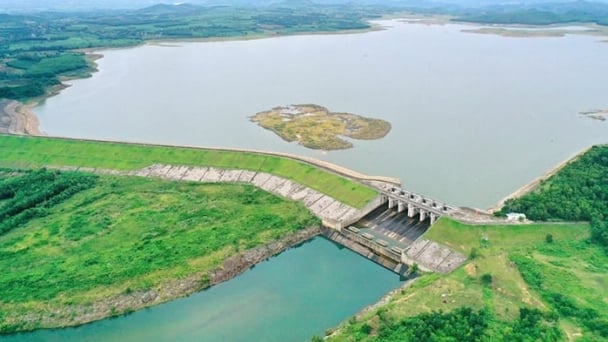
(VAN) In the face of climate change, rapid urbanization, and rising pollution, deploying advanced technologies is an urgent solution for sustainable water resource management.
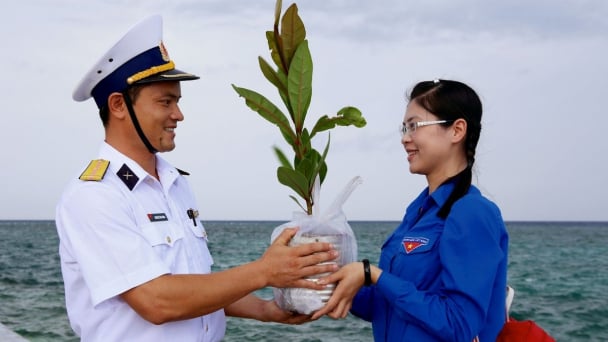
(VAN) MB launched the 'Million green landmarks' campaign to raise funds for tree planting, aiming to green the Truong Sa archipelago and contribute to safeguarding maritime sovereignty.
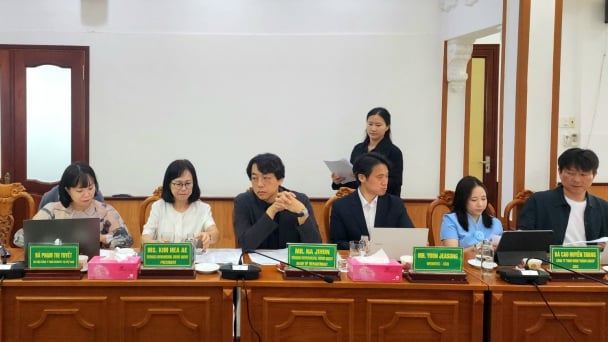
(VAN) A proposed waste-to-energy plant initiative has captured the attention of South Korean enterprises, thereby creating opportunities for collaboration in renewable energy, amidst the increasing pressure to manage waste.